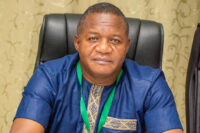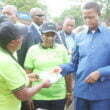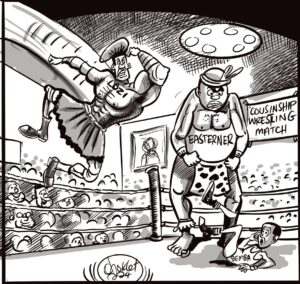President Edgar Lungu today expressed deep sorrow at the increased number of husband killers when he addressed stakeholders at the International Women’s Day commemoration.
And President Lungu says 14,000 girls will this year go on government education sponsorship under the Women Empowerment Livelihoods Project
Meanwhile the Head of State said that conditions for obtaining land must be the same for the rich and the poor, after the NGOCC complained that women had continued to suffer discrimination and marginalisation.
Officiating at this year’s Women’s Day event at the Lusaka Showgrounds, President Lungu regretted the deaths of men at the hands of their spouses, but was quick to note that wives had not been spared by their husbands either.
“In as much as I feel elated to be here, I am deeply saddened by incidences of gender based violence. It has become a common feature, for instance, that our women who are life givers are killing their partners in sometimes very gruesome circumstances,” President Lungu said.
“I am equality saddened by the increased cases of murder of our women folks occasioned by men.”
The Head of State also shared a light moment with first lady Esther after a representative from YWCA, in her vote of thanks, asked all men who had ever beaten their wives to say sorry to them.
President Lungu turned to Esther, looked her in the eyes, held her hand and whispered a message which sent senior government officials and women’s groups representatives in the laughter.
President Lungu also announced that government would sponsor 14,000 girls through secondary school, saying education was the best “equaliser”.
“Going forward, my government through the Girls Education and Women Empowerment Livelihoods Project has identified 14,000 girls from sixteen of the poorest districts in secondary, who have been put on this project starting this year 2017,” President Lungu said.
And in line with the Women’s Day theme: “Promoting inclusiveness in economic participation as a means of attaining sustainable development”, President Lungu said the 50-50 principal in land allocation would bring sanity in land distribution.
“My government has put in place a legal framework to allow the 50-50 principle in land allocation. To this end, let me remind the Minister of Lands Honourable Jean Kapata, who herself is a woman, and Minster of Local Government and Housing Honourable Vincent Mwale who is very supportive to the cause of women, to ensure that my directives to the 50-50 allocation of land is fully implemented. The conditions which apply when you are giving land to President Edgar Lungu or Honourable Stephen Kampyongo should apply when you are giving land to Charity Banda, a PF cadre,” President Lungu said.
“If you don’t ask me for my bank statement when I apply for land, don’t ask that from Charity Banda when she applies for land; we are equal. If you don’t ask me for my marriage certificate when I am applying for land, similarity give Honourable Mumbi Phiri land without asking whether she is married or not.”
President Lungu also directed finance minister Felix Mutati to allocate more resources to the Ministry of Gender saying it was unfortunate that it was being under funded.
Earlier, Longwe said it was sad that women had continued to suffer discrimination.
“This year’s International Women’s Day provides an opportunity to appreciate the remarkable contribution of women to society. It is an opportunity to reflect on the daily struggles and challenges women face across the country,” Longwe said.
“It is sad to note that over the years, women have continued to suffer discrimination and systematic marginalization from, equitably and equally, participating and benefiting from the economic growth.”
She further observed that poverty affected more women than men.
“The 2015 living conditions monitoring survey revealed that extreme poverty in Zambia is much higher in rural areas, about 77 per cent and impacting more on women at 57 per cent. This is largely because women lack economic, social, and political power which excludes them from development processes such as investing in women economic empowerment, which serve a direct path towards poverty eradication,” said Longwe.












